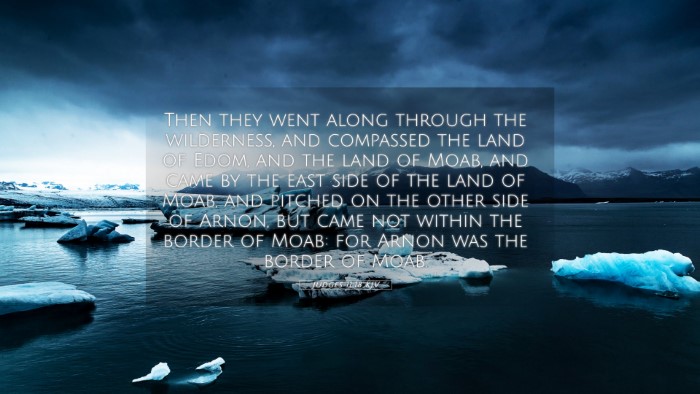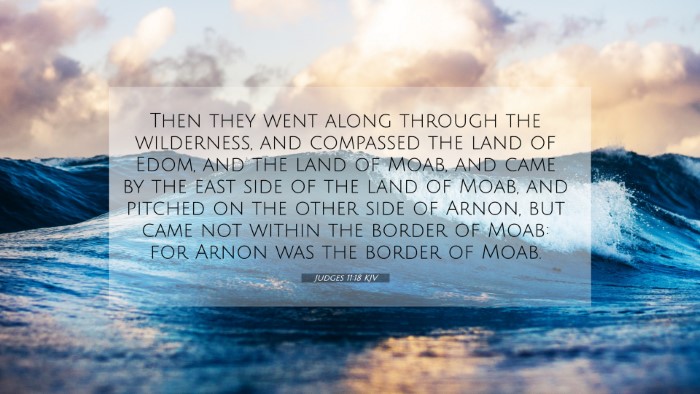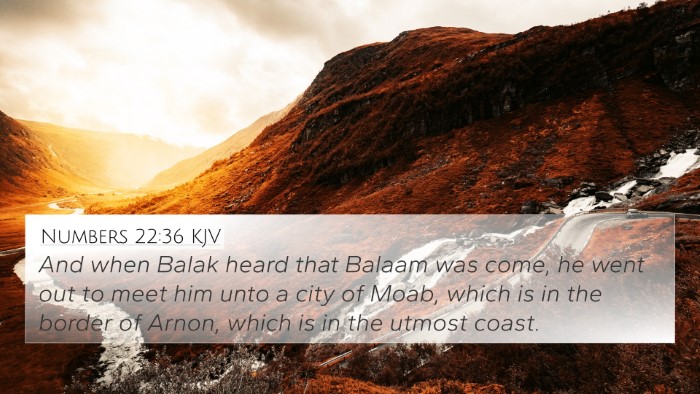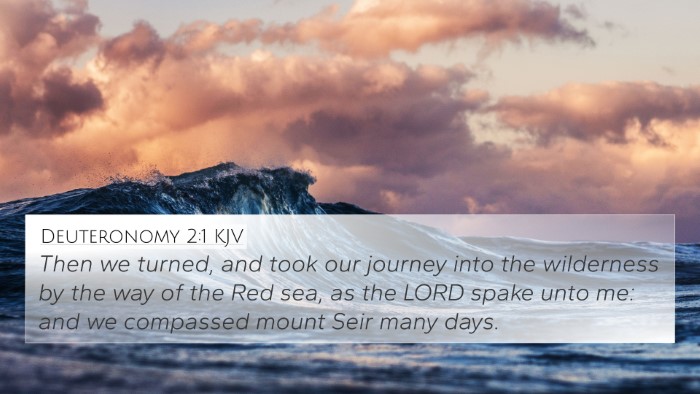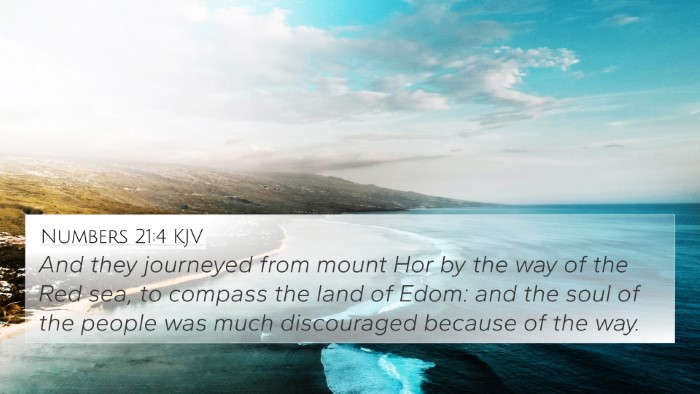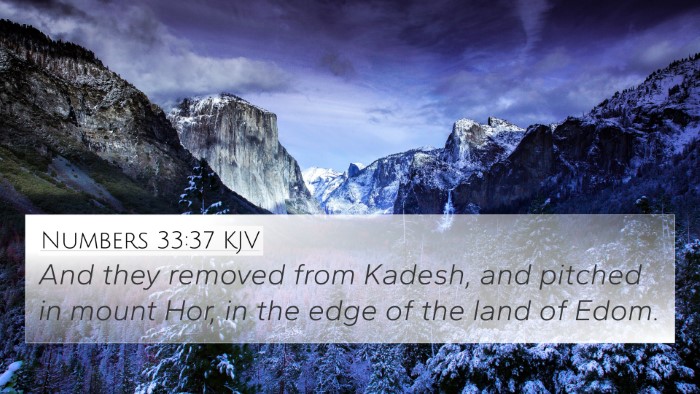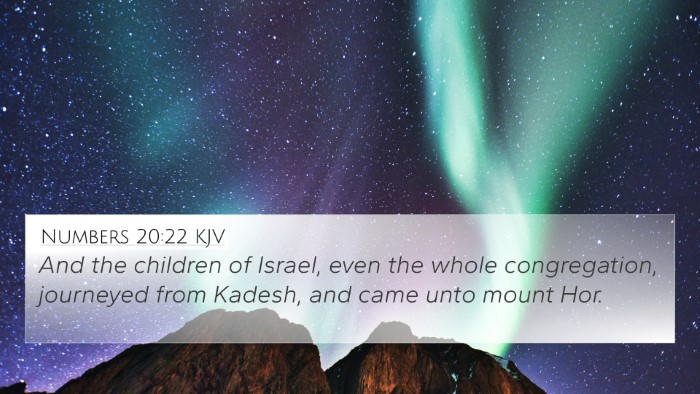Biblical Interpretation of Judges 11:18
Judges 11:18 states: "Then they went through the wilderness, and compassed the land of Edom, and the land of Moab, and came by the east side of the land of Moab, and pitched on the other side of Arnon; but came not within the border of Moab, for Arnon was the border of Moab."
This verse recounts the journey of the Israelites as they navigated through territories on their way to the Promised Land, highlighting their avoidance of conflict with the nations of Edom and Moab.
Meaning and Insights
Using insights from Matthew Henry, Albert Barnes, and Adam Clarke, we can delve deeper into the meaning of this verse:
-
Historical Context:
Henry comments on the journey of the Israelites in the wilderness as being a prolonged event filled with lessons on obedience and faith. This specific verse highlights their careful navigation around hostile territories to avoid violence, reflecting their need to comply with divine guidance.
-
Geographical Significance:
Barnes points out the geographical landmarks mentioned, like Edom and Moab, which were critical in the Israelites' journey. This avoidance is akin to a tactical maneuver, underscoring the importance of the Lord's instructions to preserve peace.
-
Theological Implications:
Clarke emphasizes the theological aspect of this journey, suggesting that God's people must often avoid certain paths or confrontations, emphasizing reliance on God for direction. The mention of Arnon as the border symbolizes the separation from those who oppose God’s people.
Cross-References
This verse has notable cross-references that provide further understanding:
- Numbers 20:14-21: The refusal of Edom to allow Israel passage illustrates the tensions and enmity between these nations.
- Deuteronomy 2:1-9: This passage outlines God's instructions regarding the territories Israel should avoid, reinforcing the significance of Judges 11:18.
- 2 Kings 3:9: Discusses the Moabite territory's geographical significance, aligning with the context of the Israelites' path.
- Isaiah 15:1-9: Prophecies regarding Moab that illustrate the fate of this nation further enhance the understanding of Israel's strategic choice.
- Jeremiah 48: A prophecy that highlights the ongoing conflict between Israel and Moab, shedding light on the motives behind Israel's cautious behavior.
- Deuteronomy 3:16: Mentions the land of Moab and the division of territories, linking it with the broader narrative of Israel's journey.
- Romans 12:18: A New Testament reflection inviting believers to live peaceably with all, serving as a thematic connection to the avoidance of conflict seen in Judges 11:18.
Connections Between Bible Verses
The narrative around Judges 11:18 draws many connections within Scripture. It reflects themes of obedience, the importance of divine guidance, and the sovereignty of God in the leadership of His people. As the Israelites journey, they epitomize the struggle between faith and circumstance, making this narrative timeless in both historical and contemporary contexts.
Tools for Bible Cross-Referencing
To explore these connections, one can utilize various tools available:
- Bible Concordance: A tool that helps locate keywords and phrases, revealing how they appear throughout the text.
- Bible Cross-Reference Guide: This a structured resource that assists in finding related verses based on themes or topics.
- Bible Reference Resources: Various guides and online tools offer insights into cross-referencing verses effectively.
Conclusion
Understanding Judges 11:18 within the broader narrative of Israel's journey provides a valuable perspective on the significance of obedience to divine guidance and peace amidst conflict. By utilizing cross-referencing methods, one can deepen their exploration of Scripture, uncovering rich thematic and doctrinal connections that span both the Old and New Testaments, leading to a robust understanding of God's overarching plan for humanity.

